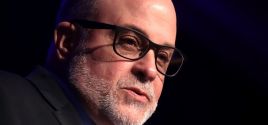Area activists spied onPentagon put anti-war groups across country in database on terror activity.By Crystal Carreon and Dorothy Korber Sacramento Bee Nov. 23, 2006 |
Popular 
House Passes 'Antisemitism Awareness Act' to Silence Criticism of Israel as Hate Speech

WATCH: Sheryl Sandberg's Vile 'Hamas Mass Rape' Documentary Debunked by Electronic Intifada

Zionist Mob Attacks Pro-Palestine Protesters at UCLA While Screaming 'Second Nakba'

Report: Over 1,700 People Have Been Arrested on Campuses Nationwide in Past Two Weeks

'We Own This Country': Mark Levin Says Pro-Palestine Protesters Should be 'Rounded Up and Deported'
 Sacramento peace protesters were targeted by a widespread domestic spying operation in which the Pentagon monitored anti-war groups across the country, newly released government documents show. The documents, obtained by the American Civil Liberties Union and made public Tuesday, detail entries made into the Pentagon's Threat and Local Observation Notice database dating back to November 2004, when two local groups protested at the Military Entrance Processing Station on Rosin Court in North Sacramento. The revelation adds more fuel to the ongoing debate over governmental spying on citizens critical of the war in Iraq. It is the latest in a series of cases that includes the California National Guard's spying on anti-war grandmothers and secret wiretapping by the National Security Agency. The 3-year-old database, known as TALON, was designed to track military intelligence on possible terrorist activity. But the reports released Tuesday reveal surveillance of peaceful protests at several military recruiting stations across the country, raising new questions of how far such spying has gone in the name of national security. "Basically, I think this speaks of a new age of McCarthyism," said Bill Durston, former president of Physicians for Social Responsibility, who was at the Sacramento protest cited in the Pentagon report. "It's frightening that they would try to suppress free speech and intimidate people this way." The Pentagon now says that including peace demonstrations was inappropriate and that the material -- 186 items out of 13,000 entries -- has been purged from the database. The nine reports released Tuesday include protests at military recruiting centers in Springfield, Ill., rolling protests across Atlanta and a church service for peace in New York. "The U.S. military is not spying on U.S. citizens," Maj. Pat Ryder, a Pentagon spokesman, said Tuesday. "That data should never have been in the database in the first place." The Pentagon released the documents in response to a Freedom of Information Act request filed by the ACLU. After reviewing the reports, the ACLU says it will push for a congressional investigation of what it characterizes as domestic spying. Among the questions it wants answered is who monitored these groups -- and how. "There is a real danger when the United States military gets in the business of monitoring peaceful protest activities," said Ben Wizner, an attorney with the ACLU national legal department. According to the Pentagon report, authorities described the Sacramento protest as "deeply into 'counter-recruiting' " and identified it as "incident type: specific threat." Under comments, the report states: "It appears this protest will most likely be peaceful, but some type of vandalism is always a possibility." George Main, president of the Sacramento Veterans for Peace, was there that rainy day in 2004. He said Tuesday that he was aware then that the federal government had targeted and monitored his group -- actions that he called illegal. "The protest was held on November 11," he recalled. "On the morning of the 10th, I received a call from a special agent for Homeland Security. I assured him that we knew the recruiting office would be closed and that we were peaceful and wouldn't destroy anything." During the protest, Main read the names of 18 soldiers who had passed through the processing station and later died in Iraq. He suspects that his phones were tapped after that and that undercover agents tried to infiltrate the local Veterans for Peace chapter. He bases those suspicions on noises in his phone equipment and from the strangers who showed up at gatherings but refused to supply contact data. He speaks from personal experience, he said. In the late 1970s, he was part of the Army's domestic spying operation. "One of the things I did was spy on Americans" he said. "I objected to it at the time, but I did what I was told. It was wrong. I'm upset that they're doing it to me, but I know it happens." Surveillance of peace protesters also has surfaced as a local issue. In February 2003, Sacramento police officers videotaped an anti-war demonstration. Police Chief Albert Nájera said that such taping was routine procedure at any big gathering. But demonstrators worried that their images would be used against them one day. That same year, controversy erupted after protesters discovered that an undercover sheriff's detective in Fresno had infiltrated Peace Fresno, an anti-war group formed after the Sept. 11 attacks. And undercover agents from the California Highway Patrol attended training sessions in 2003 by a protest group planning demonstrations at the Ministerial Conference and Expo on Agricultural Science and Technology that was held in Sacramento. Massive protests and clashes with police marred that conference. |



